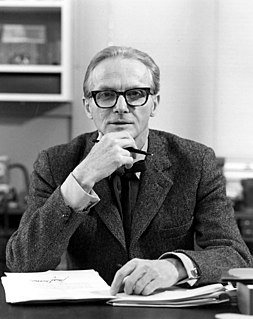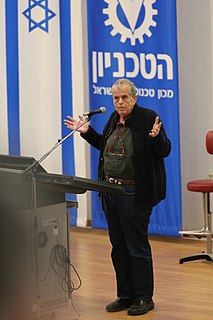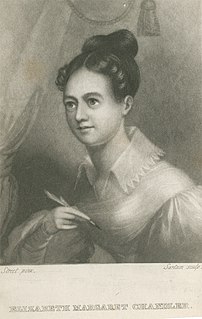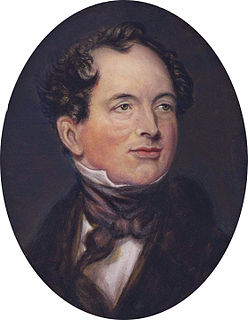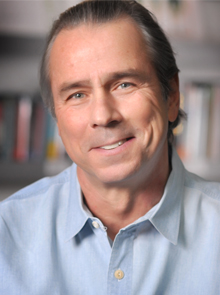A Quote by J. M. Coetzee
In its conception the literature prize belongs to days when a writer could still be thought of as, by virtue of his or her occupation, a sage, someone with no institutional affiliations who could offer an authoritative word on our times as well as on our moral life.
Related Quotes
Our schools offer no conception of the scientific process of discovery. They do not encourage creative thought, in fact, they stifle it through too much rigidity in teaching. If we set out to give as little help as possible to originality in science, we could hardly devise a better plan than our education system. Youngsters ought to be told what is unknown about ourselves and our universe as well as what is known.
It was watching Madeline Alby eat cheese with every ounce of her being, like it was the first and best time, that made him realize that he had never really tasted cheese, or crackers, or life. And he didn't want his daughter to live that way. He'd moved her into her own room the night before...He hadn't slept well, and had gotten up five times during the night to check on her, only to find her sleeping peacefully, but he could lose a little sleep if Sophie could go through life without his fears and limitations. He wanted her to experience all the glorious cheese of life.
In ancient times, any man rising up above the common people tried to shape his life according to his principles; it is no longer like than now; it is (because) for the ancients, moral was a principle of inner life, whereas in our days, most of the time one is content to adhere to an official moral, that we recognize in theory, but that one does not care to put into practice.
Pride was his life force; for us it was a live nerve that he could teach us to brush. One stroke, a good practice, and we could tingle for days ... First, he found the pride in each of us, then he taught us how good it could feel. What he was ultimately after was for every one of us to learn to light our own fires and glow our brightest.
[Prudence] is the virtue of that part of the intellect [the calculative] to which it belongs; and . . . our choice of actions will not be right without Prudence any more than without Moral Virtue, since, while Moral Virtue enables us to achieve the end, Prudence makes us adopt the right means to the end.
Failure is important because the first time you win (or lose), it could be luck, it could be timing, or it could be talent. It's only after you fail once or twice and learn to rely equally on thought, analysis, and anticipation-in addition to speed, talent, and execution-that you can really call yourself an entrepreneur ... In the long run, it's mind over muscle, strategy over strength, and a healthy perspective-not just a lot of perspiration-that make someone a real success in his or her business and in the equally important rest of his or her life.
In the critic's vocabulary, the word "precursor" is indispensable, but it should be cleansed of all connotations of polemic or rivalry. The fact is that every writer creates his own precursors. His work modifies our conception of the past, as it will modify the future." -- Essay: "Kafka and his Precursors
I didn't write about my mother much in the third year after she died. I was still trying to get my argument straight: When her friends or our relatives wondered why I was still so hard on her, I could really lay out the case for what it had been like to be raised by someone who had loathed herself, her husband, even her own name.
I stood there in the kitchen, watching her staring across the meadow still searching for her nemesis and I thought, suddenly, that this is all our lives - this is the one fact that applies to us all, that makes us what we are, our common mortality, our common humanity. One day someone is going to come and take us away: you don't need to have been a spy, I thought, to feel like this.
Do you know why I married you, Philip?" "Presumably you wanted the financial security and social prestige I could offer." She chuckled at that and shook her head..."I believed," she confessed somberly, "I honestly believed that I had something to offer you too--something you needed. Do you know what it was?" "I can't imagine." "I thought I could teach you how to laugh and enjoy life." Philip and Caroline
All good writers inspire me as I have never thought I was any good. As far as a writer who made me think I could do it, it was Henry Miller. Not because I thought he was so simple that I reckoned I could pull it off as well, but it was his freedom and guts that really moved me to want to write all the time.
We don't get a chance to do that many things, and every one should be really excellent. Because this is our life. Life is brief, and then you die, you know? So this is what we've chosen to do with our life. We could be sitting in a monastery somewhere in Japan. We could be out sailing. Some of the team could be playing golf. They could be running other companies. And we've all chosen to do this with our lives. So it better be damn good. It better be worth it. And we think it is.
[Concerning the Word preached:] Do we prize it in our judgments? Do we receive in into our hearts? Do we fear the loss of the Word preached more than the loss of peace and trade? Is it the removal of the ark that troubles us? Again, do we attend to the Word with reverential devotion? When the judge is giving the charge on the bench, all attend. When the Word is preached, the great God is giving us his charge. Do we listen to it as to a matter of life and death? This is a good sign that we love the Word.

